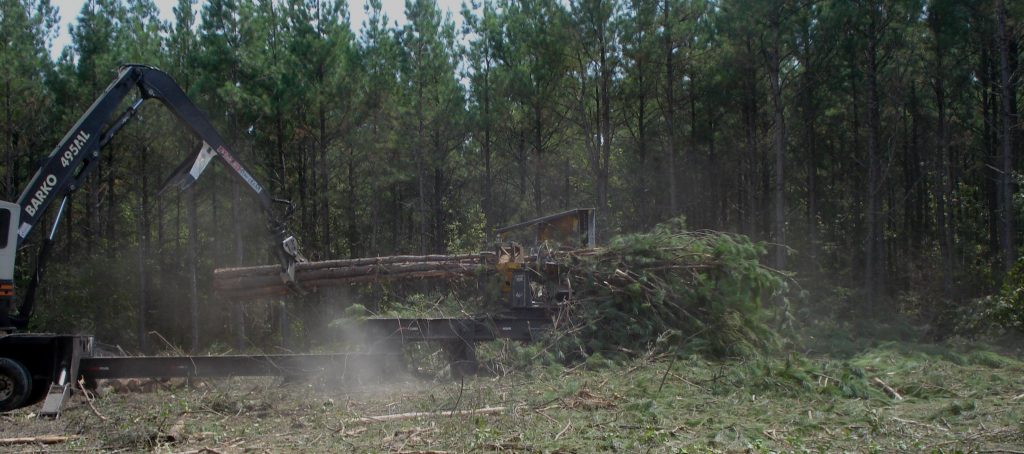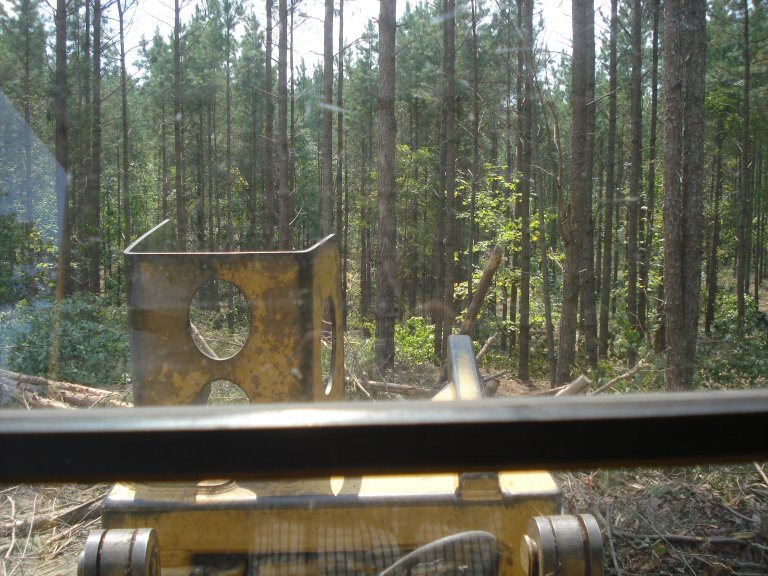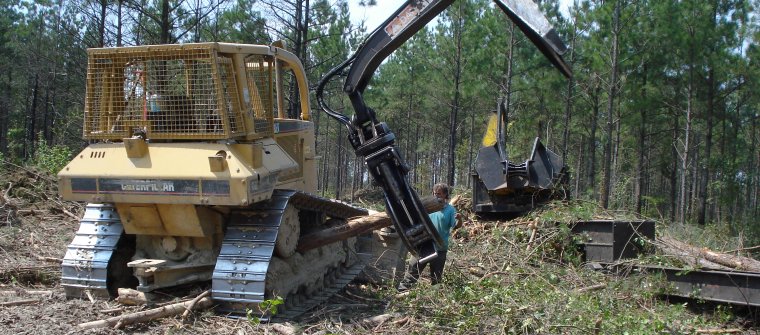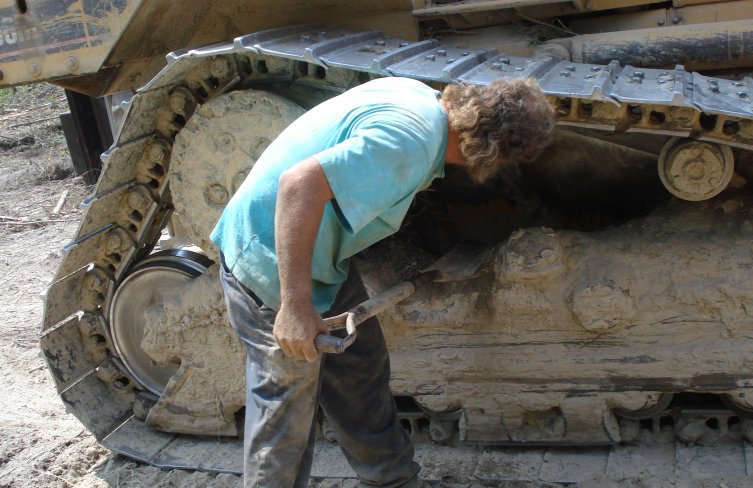
Logging is a tough job. Forests usually to grow in inconvenient locations, often at the ends of long dirt roads, so loggers have to travel long bumpy distances just to get to their jobs, which means waking up early and getting home late. I got to look at a day of their work, which I wrote about yesterday. Here are a few more pictures along with some narrative.
Below is the inside of the cab of the buncher. Is is not quite as armored as an MRAP, but as I said, yesterday, it is reinforced so that almost nothing in the woods could break through to the operator. I think the glass actually is bulletproof. It has a break, but no gas pedal. Once it starts, it keeps going unless you stop it (or I suppose it runs out of gas).

Like anybody who works outside, the weather is important to loggers. Modern machines can work under a variety of conditions, but rain and mud make the job a lot harder.

Larry’s team is paid by for production, so the quicker they are the more they make. Individuals get a percentage of the take, depending on the job they do. Since all the jobs depend on the others, it doesn’t make sense to create independent incentives. It is important to move fast for the individual earnings, but also because of the high cost of the machines. You don’t want to leave a million dollars’ worth of machines standing idle.
It is hard to find qualified workers to run the machines. It used to be that there were lots of men on the job and some of them would learn to use the machines from the others, but young people are less interested in taking up this work. Larry said that his firm may have to start a more formal training program.
This is true of many jobs that require actual work. I recall when a guy came to fix my furnace in New Hampshire back in 2004. It was hard to get him to come. You had to make an appointment well in advance. He told me that he had too much work and had been trying w/o success to get an apprentice to help him. The guy said was looking for a young person with no particular experience, but with a good work ethic and that the apprentice could expect to make around $80K a year within a few years. You would think he would have no shortage of applicants. Maybe the bad economy will help encourage them.

Each work site has its own fix-it truck, full of replacement parts and tools to fix whatever can go wrong with the equipment. Nevertheless, sometimes the right tool is just a simple log. Look at the pictures above and below. A root got stuck in the track of the bulldozer and the giant steel hand was using a log like a giant toothpick to get it loose.

